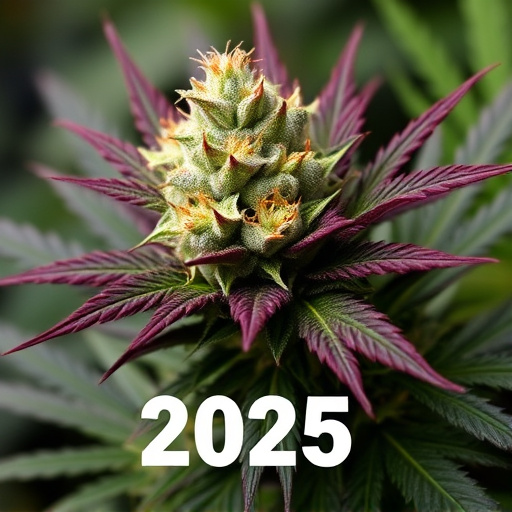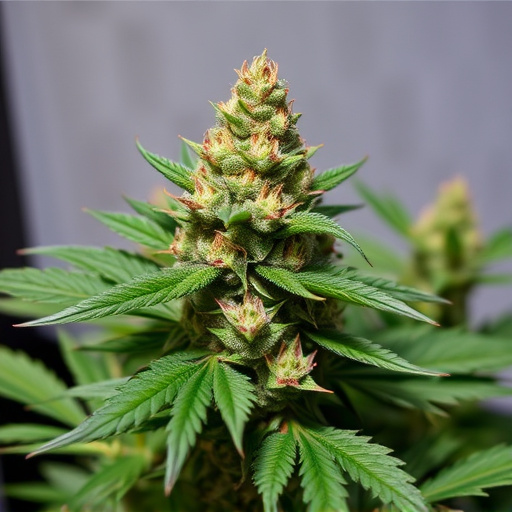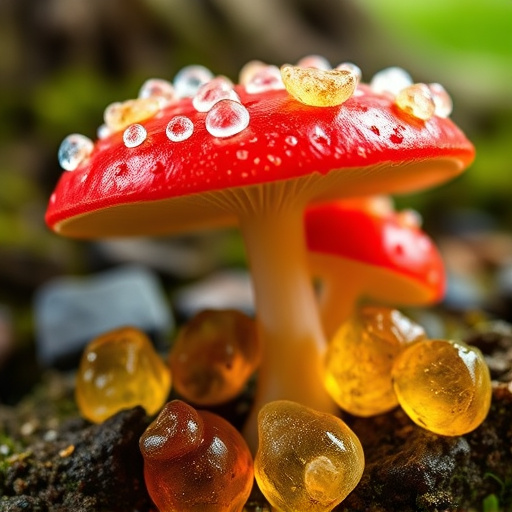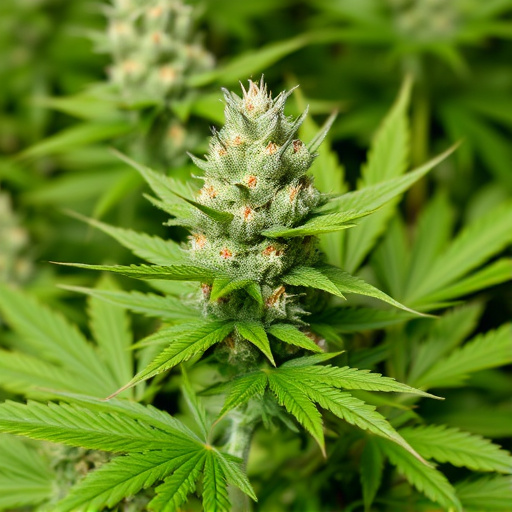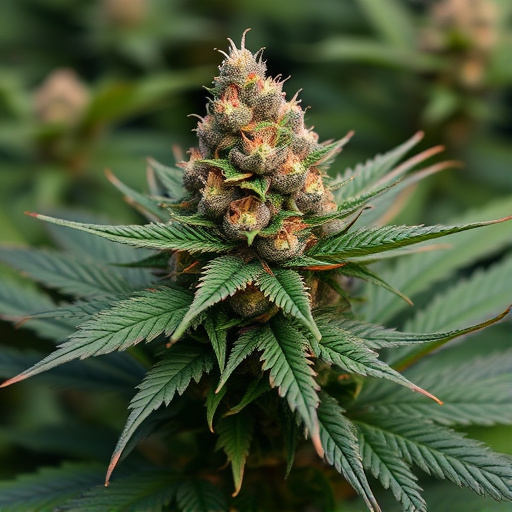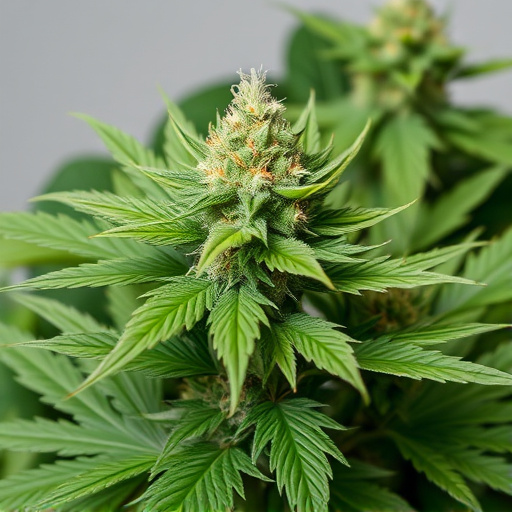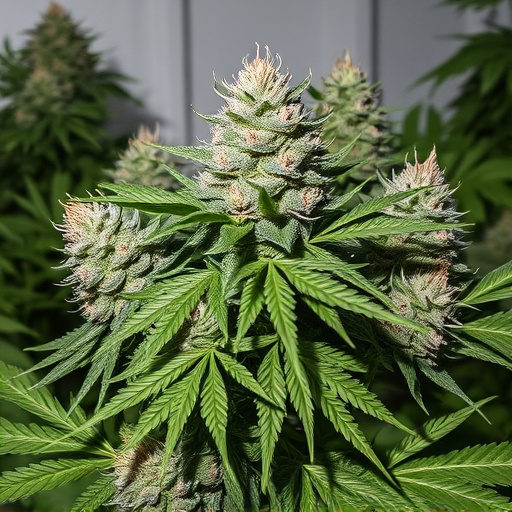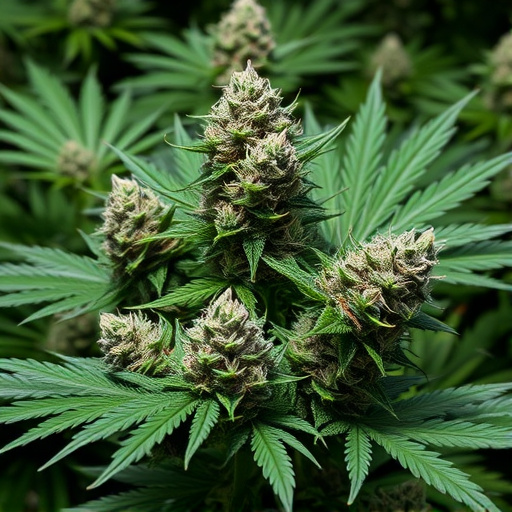Indica cannabis strains offer relaxation and euphoria due to high THC levels, but carry short-term side effects like memory impairment and heightened sensory perception, which can impact focus and coordination. Long-term risks include respiratory issues from smoking, mental health impacts, cognitive impairments, and potential dependency. To minimize these risks, practice moderation through breaks, lower THC options, mindfulness, hydration, and nutrition, balancing indica use with healthy habits for optimal well-being.
“Curious about the potential side effects of smoking weed? This comprehensive guide explores the impacts of consuming indica cannabis strains, both short-term and long-term. Discover how these substances can affect your mind and body, from immediate sensory changes to persistent health risks. We delve into strategies for managing negative impacts and offer insights into mitigating the effects of regular use. Understanding these side effects is crucial for informed decision-making regarding indica cannabis consumption.”
- Short-term Side Effects of Indica Cannabis Strains Consumption
- Long-term Health Implications and Potential Risks
- Managing and Mitigating Negative Impacts on Mind and Body
Short-term Side Effects of Indica Cannabis Strains Consumption
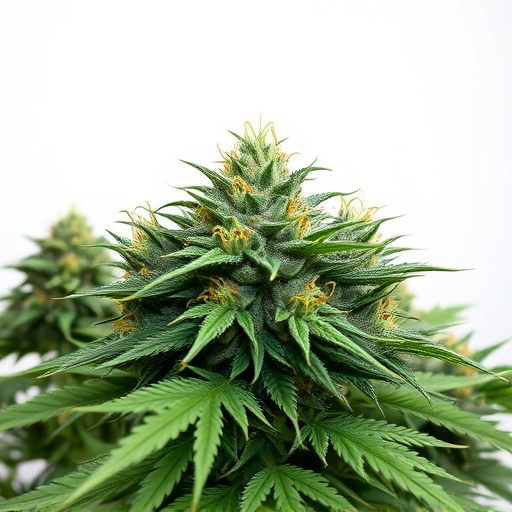
The short-term side effects of consuming indica cannabis strains can vary greatly among individuals, but there are some common experiences. Often, users report feeling a profound sense of relaxation and euphoria, making it popular for evening or nighttime use when seeking to unwind after a long day. This effect is due in part to the high levels of tetrahydrocannabinol (THC), the primary psychoactive compound in cannabis. However, this heightened state can also lead to short-term memory impairment, where tasks requiring focus and concentration become more challenging. Users might experience a decrease in motor skills, coordination, and balance, which can be particularly risky if engaging in activities that demand precision, such as operating machinery or driving.
Another common short-term effect is heightened sensory perception, leading to an enhanced appreciation for music, art, and flavors. Some users describe a feeling of heaviness or sedative effects, which can promote relaxation but may also cause drowsiness or even mild disorientation. In rare cases, individuals might experience anxiety or paranoia, especially if they consume a higher-than-usual dose or have a personal history of mental health conditions. It’s important to be mindful of these potential side effects, especially when trying different indica strains for the first time.
Long-term Health Implications and Potential Risks
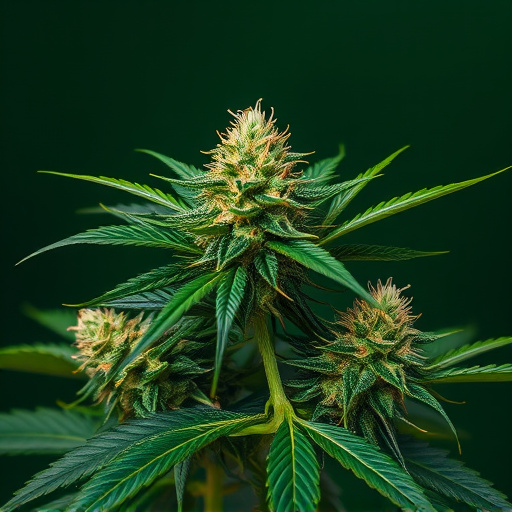
Long-term use of marijuana, especially potent indica cannabis strains, has been linked to several health implications and potential risks. Regular smoking can lead to respiratory issues due to the harmful toxins and irritants present in the smoke, similar to tobacco products. This is particularly concerning for individuals with pre-existing lung conditions or those who engage in heavy, long-term smoking.
Additionally, chronic marijuana use may impact mental health over time. Studies suggest a potential link between regular cannabis consumption and an increased risk of psychosis, anxiety disorders, and depression. These risks are often discussed in the context of high THC content strains prevalent in today’s market, as these powerful compounds can alter brain chemistry. Long-term users may also experience cognitive impairments, affecting memory and learning abilities.
Managing and Mitigating Negative Impacts on Mind and Body
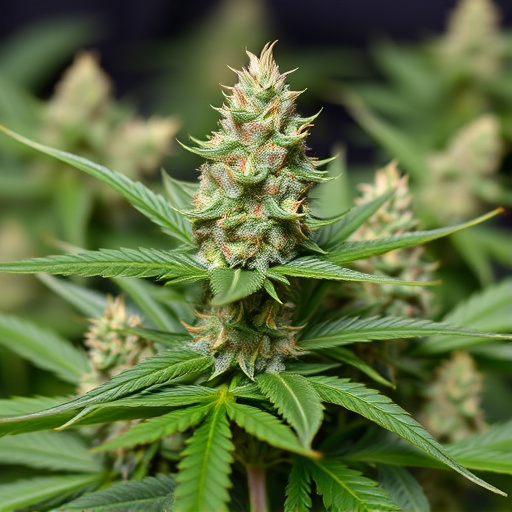
Many users turn to indica cannabis strains for their calming and relaxing effects, but even these can have negative impacts on mind and body if not managed properly. The key is understanding that while cannabis can offer relief from certain symptoms, it’s not without potential drawbacks. Regular consumption of any substance, including indica strains, can lead to dependency and addiction over time. Additionally, the potent THC levels in modern cannabis may cause anxiety, paranoia, or even psychosis in susceptible individuals.
To mitigate these negative effects, moderation is crucial. Taking breaks from smoking, especially strong indica strains, can help restore balance. Choosing lower THC options or blends with more balanced CBD content can also reduce the risk of adverse reactions. Incorporating physical activity and mindfulness practices like meditation or yoga can further support mental and emotional well-being. Proper hydration and a nutritious diet are essential for maintaining overall health and aiding in recovery from any substance use.
While indulging in indica cannabis strains offers recreational and medicinal benefits, it’s crucial to be aware of potential side effects. Short-term impacts may include heightened senses or relaxation, yet anxiety, paranoia, and cognitive impairments are also risks, especially with frequent use. Long-term, regular consumption could lead to respiratory issues, mental health disorders, and impaired memory. However, managing these effects is achievable through responsible use, setting boundaries, and seeking professional guidance when needed. By understanding the potential drawbacks of indica cannabis strains, users can make informed decisions to minimize any negative impacts on their mind and body.

